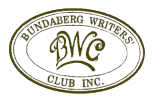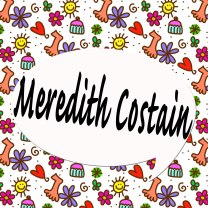Let’s face it. Writing can be a lonely job, even when you’re an introvert. While extraverts are off playing golf, meeting for coffee and cake or, heaven forbid, singing karaoke, we writers are crouched over our laptops, trying to transpose those voices from our heads onto the page and ultimately into a book. Yes, writing is something we must do in solitude.
Usually.
But, there is a place where we introverts can shine.
GenreCon is a place to hang with your tribe, soak up the words of successful authors, editors and publishers, and discuss ideas with people who already know about those voices in your head, because they have them, too.
 Yes, once a year, writers can come together in the joyous celebration that is GenreCon. And yes, your heart should give a little flutter when you read the word, just like mine did when I typed it. And here is why: Every February the Queensland Writers Centre hosts a writing conference that brings local, interstate and international authors together at the State Library of Queensland. And it’s all achieved by the tireless work of the Queensland Writers Centre. How they manage to create such a miracle, I have no idea. I can’t even organise a chook raffle in a pub!
Yes, once a year, writers can come together in the joyous celebration that is GenreCon. And yes, your heart should give a little flutter when you read the word, just like mine did when I typed it. And here is why: Every February the Queensland Writers Centre hosts a writing conference that brings local, interstate and international authors together at the State Library of Queensland. And it’s all achieved by the tireless work of the Queensland Writers Centre. How they manage to create such a miracle, I have no idea. I can’t even organise a chook raffle in a pub!
I’ve been to several GenreCons, and always come away bubbling with excitement, new stories leaping onto the pages of my notebook, more stories queueing in a disorderly fashion and squabbling to be put down on the page first. Honestly, I wish I’d never given up shorthand at school. This year’s GC, though, was almost like a roller coaster ride for me. It began when I won the GenreCon Short Story Award, and my story Smooth was read out by none other than the keynote speaker, Patrick Ness, a brilliant YA, Children’s and Adult writer and scriptwriter (think Dr Who). Now, winning was enough of a surprise, and for Patrick to read my story out on the launch night was sublime, but I even managed a few minutes chat with him afterwards.
 Rubbing shoulders with internationally famous authors? Yes, anything is possible when you attend GenreCon. But wait, there’s more. Much, much more. But, you knew that already, didn’t you?
Rubbing shoulders with internationally famous authors? Yes, anything is possible when you attend GenreCon. But wait, there’s more. Much, much more. But, you knew that already, didn’t you?
Being a writer of contemporary crime, historical crime and fantasy, I found the hardest thing about the three-day weekend was choosing whose workshop or panel to attend. Friday was a full-day workshop with Nick Earls on the Novella, and, with the novella’s recent rise in popularity, I jumped at the chance. I’m now halfway through writing two novellas. I told you GenreCon was inspiring. Saturday and Sunday were full of panels filled with authors, editors and publishers giving us their insights on new trends in publishing, as well as workshops on crime writing, sci-fi writing and getting into your villain’s head, to name a few.
There were talks on the craft of writing, how to write the crucial synopsis and cover letter, and a session on PR. Yes, an ugly word to many writers, but a necessary evil if we want to promote our product – our writing. Authors generously took us through their writing habits, how they created characters and plotlines, why they were driven to write these stories, and their experiences on their journey to publication. Julie Janson’s two-hour workshop on creating a crime novel was not to be missed.
I can see how my time at GenreCon has informed my most recent writing. Not only am I enthused to write more but I see an improvement in my writing itself. It’s more polished, more directed, I am able to clearly define my story’s plot-lines, my character’s arc, paring away the superfluous right down to the bones to build stronger prose.
I have the knowledge to direct my manuscripts to editors and publishers and give them my very best writing. I now have the skills to craft a tight synopsis and cover letter to accompany my manuscript to the publishers. And after a chat with a publishing house at GenreCon, my manuscript was requested for them to read. This particular pairing would not have happened except for GenreCon.
GenreCon is a long weekend where writers can learn, meet other writers and drink from the well of inspiration that only comes from writers gathering together and sharing their thoughts. Even little introverts like you and I can shine…and then escape back into our natural environment – the study, crouched over our laptops, wrapping the skin and bones around those voices in our heads.
Laree Chapman

I am extremely grateful to the Regional Arts Development Fund (RADF) for awarding me a Quick Response Grant to attend GenreCon 2024 in Brisbane. Their foresight in granting artists (and I include writers as artists) funding to help them attend festivals, events and workshops is greatly appreciated.









 Remain polite while declining offers like this. And no, not because you’re shy about your own writing, but because a beta reader has to work for you, not the other way around.
Remain polite while declining offers like this. And no, not because you’re shy about your own writing, but because a beta reader has to work for you, not the other way around.

